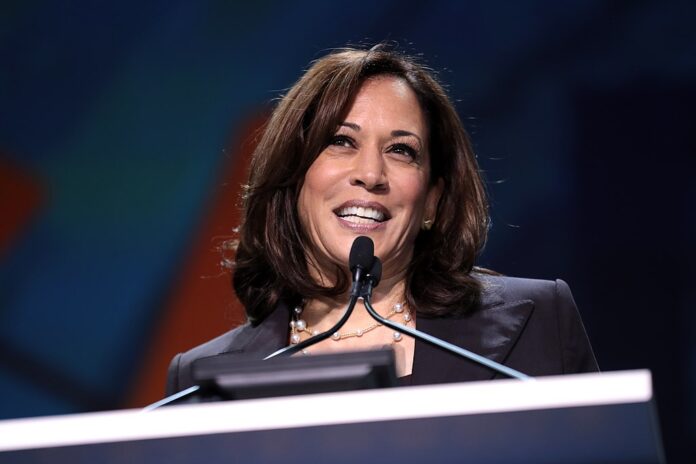The Vice President’s trip underscores her commitment to reproductive rights following reports linking Georgia’s abortion restrictions to preventable deaths
Vice President Kamala Harris made a swift trip to Georgia on September 20, 2024, following reports of two tragic deaths linked to the state’s stringent abortion restrictions. Harris directed her team to organize the visit urgently, reflecting her proactive approach to addressing pressing issues in battleground states.
At a campaign event in Atlanta, Harris condemned former President Donald Trump for his role in fostering an environment where such restrictive abortion laws could thrive, coining the phrase “Trump abortion ban” to underscore her message. “The reality is for every story we hear of suffering under Trump abortion bans, there are so many other stories we’re not hearing but where suffering is happening every day in our country,” she stated.
Her visit was emblematic of a broader strategy aimed at rallying voter support by highlighting critical issues. This rapid-response approach mirrors her previous engagements, such as her passionate defence of civil rights after the expulsion of two Black Democratic legislators in Tennessee and her criticism of educational reforms in Florida that downplay Black history.
Embed from Getty ImagesDuring her speech, Harris brought attention to the heart-wrenching story of Amber Nicole Thurman, a 28-year-old woman whose death was tied to Georgia’s six-week abortion ban. After learning she was pregnant with twins, Thurman faced logistical challenges in seeking an abortion, ultimately resulting in a fatal medication abortion complication. Harris vowed that Thurman’s story would not be just another statistic, emphasizing the preventable nature of her death, as determined by medical experts.
In addition to Thurman’s story, Harris mentioned the case of Candi Miller, a 41-year-old mother who also died due to complications related to her abortion. Miller’s family noted that fear of legal repercussions influenced their decision not to seek immediate medical care, highlighting the dire consequences of restrictive abortion policies.
Harris also challenged Republicans who advocate for exceptions to abortion bans, questioning the ethics of a policy that would allow medical care only in life-threatening situations. Her comments aimed to draw attention to the broader implications of such restrictive laws on healthcare access.
The Harris campaign views reproductive rights as a pivotal issue that can mobilize voters in the lead-up to the election. Polling data indicates that voters trust Harris over Trump when it comes to handling abortion issues, an advantage the campaign hopes to leverage. Following a notable exchange on abortion during a recent debate, the campaign launched targeted ads emphasizing her stance on reproductive rights, including a poignant story from Hadley Duvall, a rape survivor advocating for abortion access.
Analysis:
Political: Harris’s Georgia visit underscores the Democratic Party’s strategy to emphasize reproductive rights as a rallying point for voters. By connecting personal stories to broader legislative implications, Harris seeks to galvanize support among undecided voters, positioning the Democrats as defenders of women’s rights against a backdrop of GOP-led restrictions.
Social: The visit highlights societal debates surrounding reproductive rights, particularly the narratives of individuals affected by restrictive laws. By focusing on personal stories of suffering, Harris aims to humanize the issue and foster empathy, potentially influencing public opinion on the necessity of access to safe abortion services.
Racial: The focus on the deaths of Black women like Thurman and Miller points to racial disparities in healthcare access and outcomes, especially in states with restrictive abortion laws. By spotlighting these cases, Harris emphasizes the intersection of race and reproductive rights, advocating for equitable healthcare for all women.
Gender: Harris’s advocacy for reproductive rights inherently addresses gender inequality, as restrictive abortion laws disproportionately affect women. Her framing of the issue seeks to empower women by affirming their autonomy over their bodies and healthcare decisions, which is crucial for gender equality.
Economic: Restrictive abortion laws can have significant economic implications for women, impacting their ability to participate fully in the workforce. Harris’s focus on reproductive rights aligns with broader economic arguments about the necessity of safeguarding women’s health choices to promote economic stability and growth.
